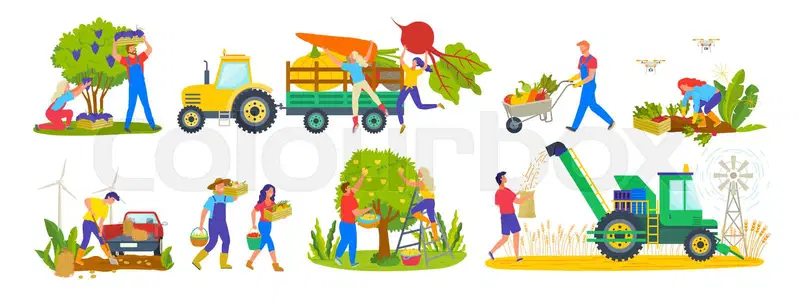Africa’s agricultural sector is experiencing a significant transformation, driven by increasing demand for high-quality products and growing consumer awareness. One key aspect of this transformation is the adoption of packaging and labeling-based agricultural marketing strategies. In this article, we’ll explore the importance of packaging and labeling in African agricultural marketing, highlighting best practices, challenges, and opportunities.
The Importance of Packaging and Labeling
Packaging and labeling are crucial elements in agricultural marketing, serving several purposes:
- Product differentiation: Unique packaging and labeling help products stand out in a crowded market, enabling farmers and producers to differentiate their products and build brand identity.
- Quality assurance: Packaging and labeling can convey information about product quality, freshness, and safety, reassuring consumers about the product’s value.
- Marketing and promotion: Attractive packaging and labeling can grab consumers’ attention, promoting products and driving sales.
- Regulatory compliance: Packaging and labeling must comply with local regulations, ensuring products meet safety and quality standards.
Best Practices in Packaging and Labeling
To succeed in packaging and labeling-based agricultural marketing in Africa, consider the following best practices:
- Design appealing packaging: Use vibrant colors, clear graphics, and simple messaging to create eye-catching packaging that reflects your brand’s identity.
- Use durable materials: Choose packaging materials that are durable, eco-friendly, and suitable for the product’s shelf life.
- Clearly label products: Ensure labels are legible, concise, and provide essential information, such as product name, ingredients, and instructions for use.
- Highlight unique selling points: Emphasize the product’s unique features, such as organic or locally sourced ingredients.
- Comply with regulations: Familiarize yourself with local regulations and ensure packaging and labeling meet all necessary requirements.
Challenges in Packaging and Labeling
Despite the benefits, packaging and labeling-based agricultural marketing in Africa faces several challenges:
- Limited infrastructure: Inadequate storage and transportation infrastructure can compromise product quality and packaging integrity.
- High costs: Packaging materials and labeling can be expensive, especially for small-scale farmers and producers.
- Regulatory complexities: Navigating complex regulatory frameworks can be daunting, particularly for small-scale operators.
- Consumer awareness: Limited consumer awareness about packaging and labeling can hinder the effectiveness of marketing efforts.
Opportunities in Packaging and Labeling
The packaging and labeling-based agricultural marketing landscape in Africa presents numerous opportunities:
- Growing demand for packaged products: Increasing urbanization and changing consumer preferences drive demand for convenient, packaged products.
- Innovative packaging solutions: New packaging technologies and materials offer opportunities for improved product quality, safety, and sustainability.
- Digital labeling and tracking: Digital solutions can enhance labeling accuracy, enable product tracking, and provide valuable insights for marketing and supply chain management.
- Export opportunities: Compliant packaging and labeling can facilitate access to international markets, expanding export opportunities for African agricultural products.
Case Studies
Several African companies have successfully implemented packaging and labeling-based agricultural marketing strategies:
- South Africa’s Woolworths: This retailer has introduced eco-friendly packaging and labeling for its fresh produce, appealing to environmentally conscious consumers.
- Kenya’s Bidco Africa: This company has developed innovative packaging solutions for its edible oil products, enhancing product quality and safety.
- Nigeria’s Dangote Sugar: This company has implemented attractive packaging and labeling for its sugar products, promoting brand identity and driving sales.
Conclusion
Packaging and labeling-based agricultural marketing is a growing trend in Africa, offering opportunities for product differentiation, quality assurance, and marketing promotion. By adopting best practices, navigating challenges, and leveraging opportunities, farmers, producers, and marketers can succeed in this dynamic landscape. As the African agricultural sector continues to evolve, effective packaging and labeling strategies will play an increasingly important role in driving growth, improving product quality, and meeting changing consumer demands.

